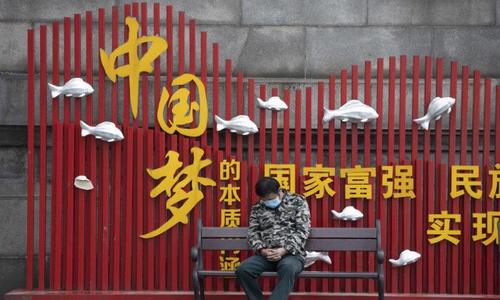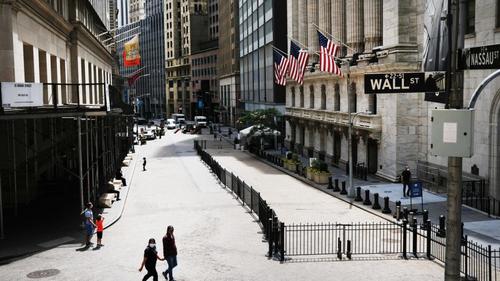George Soros And China: What A Difference A Decade Makes
Authored by John Mac Ghlionn via The Epoch Times,
Billionaire investor George Soros is no stranger to controversy. He has a history of openly criticizing a number of influential Republicans, including former presidents like George W. Bush and Donald Trump. At the same time, Soros has heaped praise on the Chinese regime.
In 2010, for example, he effusively praised the Chinese Communist Party (CCP), claiming, somewhat ludicrously, that China had “a better functioning government than the United States.”
A decade on, does Mr. Soros still feel the same way?
The answer appears to be no.
The recipe for good comedy, we’re told, is tragedy + time. The very same recipe can be applied to China-related commentary, it seems. In a recent op-ed for the Wall Street Journal, Soros called Xi Jinping “the most dangerous enemy of open societies in the world.” According to the 91-year-old philanthropist, the Chinese people are innocent victims, needlessly suffering at the hands of Xi.
Soros, clearly disturbed by China’s social credit system, is worried that other countries might find it an “attractive” option. His concerns are most definitely warranted. From Africa to South America, the Chinese regime’s surveillance system has many admirers.
People walk by the New York Stock Exchange (NYSE) in an empty Financial District in New York City on June 15, 2020. (Spencer Platt/Getty Images)
Xi’s “intensely nationalistic” mindset, writes Soros, has seen the Chinese Communist Party morph into “a Leninist party,” with the leader willing to use both political and military power to “impose” his will. Now, according to Soros, Xi’s dictatorial-metamorphosis is fully complete. In modern-day China, with Xi at the helm, “intimidation,” writes Soros, reigns supreme.
I reached out to the Open Society Foundations, founded by Soros, for comment; none were offered. Nevertheless, the op-ed makes for a refreshing read.
Remember, this is George Soros we are talking about, a man who once called the United States the “main obstacle to a stable and just world.” Now, though, China appears to be national security threat number one. However, all is far from rosy in Beijing; the Chinese regime is not without problems of its own. Whether or not it manages to overcome them remains to be seen.
Crouching Tiger, Dying Dragon
In the words of British statesman Benjamin Disraeli, “courage is fire, and bullying is smoke.” Having lived in the country for an extensive period of time, I speak from experience when I say the following: Although China projects a strong image, underneath all the chest-thumping and harsh rhetoric lies a lot of smoke.
On an individual level, we are all familiar with the concept of impression management. Humans carefully curate their image, doing everything in their power to project a very specific message. Countries also engage in impression management; some, as you are no doubt aware, are better at it than others.
In China, the effects of the heavily filtered image are starting to wear off. As the researcher Ryan Hass writes, China is not 10 feet tall. In fact, it’s much smaller than it first appears. Authoritarian regimes, obsessed by the concept of impression management, “excel at showcasing their strengths and concealing their weaknesses.” Hass encourages policymakers in Washington “to distinguish between the image Beijing presents and the realities it confronts.” Don’t be fooled by the wolf warrior-inspired bravado; China, writes Hass, “is at risk of growing old before it grows rich.” It is fast “becoming a graying society with degrading economic fundamentals that impede growth.” By 2050, the country “will go from having eight workers per retiree now to two workers per retiree.” The decline is rapid, and no filter in the world can hide this cold, hard fact. That crouching dragon is crouching for a reason—it’s injured, weak, and in desperate need of assistance.
The academic Yi Fuxian goes one step further than Hass. He believes China’s “demographic structure is actually much worse than the authorities would have us believe.” An extensive analysis of the country’s “age structure” suggests that China has considerably fewer citizens than is currently being reported. In fact, China’s population might be as low as “1.28 billion,” which would make India the most populous country in the world. What we view as “a fire-breathing dragon,” writes Fuxian, is little more than a “really a sick lizard.”
With a shrinking, rapidly aging population, the Chinese regime appears to be doing everything in its power to hide its gaping wounds. But the charade can’t go on forever. Although the propaganda machine roars on, the world is starting to see China for what it really is. Behind all the five-year plans, huge investments in infrastructure, and bombastic rhetoric lies problems that are existential in nature.
Dragons are, after all, a thing of fantasy, much like the Chinese regime’s dreams of world domination.
Tyler Durden
Mon, 08/30/2021 – 23:40
via ZeroHedge News https://ift.tt/3kHQVLJ Tyler Durden

